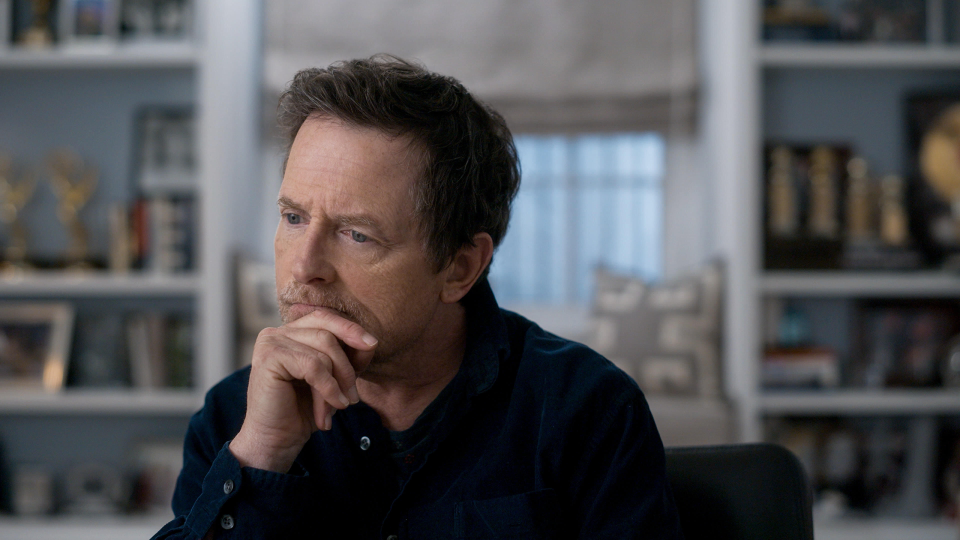This Was the Year That the Golden Age of Documentary Felt Like a Distant Memory

- Oops!Something went wrong.Please try again later.
- Oops!Something went wrong.Please try again later.
- Oops!Something went wrong.Please try again later.

As we wrap up our year-end coverage, IndieWire looks back at the people, projects, and ideas that defined 2023 — and what’s coming next.
As golden ages go, this one was more of a blip.
More from IndieWire
Five years ago, the box office celebrated nonfiction films: $22 million for “Won’t You Be My Neighbor?,” $14 million for “RBG,” $17.5 million for “Free Solo.” Critical favorites and Oscar nominees included films from exciting American first-time directors, including RaMell Ross’s lyrical breakthrough about life in rural Alabama, “Hale County This Morning, This Evening” and Bing Liu’s moving personal exposé of domestic abuse in northern Illinois, “Minding the Gap.”
2023 lacked documentary touchstones. A few faith-based documentaries succeeded by preaching to the choir, but the most successful (non-concert) documentary released in theaters this year was the Yogi Berra baseball portrait “It Ain’t Over” (box office: $705,355). You also could include Magnolia Pictures’ “Joan Baez: I Am A Noise” ($640,515) or — if you’re willing to stretch — Oscilloscope’s “CatVideoFest 2023” ($605,203).
“It’s pretty sad,” one distribution executive told IndieWire. “Audiences have not returned, and theaters aren’t booking them.”
Congratulations, streamers: You won. Distributors and exhibitors lack commitment; press and word-of-mouth aren’t providing the assurance that documentaries are worth seeking out. Instead, documentaries have become content sucked into the digital vortex. The most-watched nonfiction this year are docu-series like “Depp v. Heard,” “MH370: The Plane That Disappeared,” “Murdaugh Murders,” and “Beckham.”
A few high-profile U.S. feature documentaries with corporate support received notice and acclaim like Davis Guggenheim’s “Still: A Michael J. Fox Movie” (Apple+), Lisa Cortes’ “Little Richard: I Am Everything” (CNN), and Matthew Heineman’s “American Symphony” (acquired by Netflix). They’re all part of a glut of well-crafted, celebrity-driven narrative portraits streamed for your viewing pleasure. These examples are proficient and emotionally potent, but they also signal dubious new heights for familiar names, story structures, and capitalist ambitions.
Documentarians saw this coming. At the March 2022 CPH:DOX festival in Copenhagen, former BBC Storyville executive Mandy Chang complained about the “corporate age” of documentary where true crime, sports stories, and celebrity-driven docs would dominate the ecosystem, absorbing all the funding and ignoring new talent.
“Any field that adheres closely to a purely market-driven system,” she argued, “would eventually support only the films that reach the broadest possible audience, marginalizing those on the fringes.”
And here we are. As one doc insider admitted, “There was a pivot from embracing quality, because that was seen as valuable, to embracing schlock, because that has become more valuable.”

Riel Roch Decter, who recently produced “Carpet Cowboys” with John Wilson as executive producer, echoed that sentiment. “The occasional splashy spend by streamers on prestige, or what some call ‘creative documentaries,’ is feeling very much in the rearview mirror,” he said. “What the streamers are commissioning in non-fiction is edging mostly into reality TV.”
Also in the rearview are many of the executives who advocated for artistic documentaries. These include Courtney Sexton (her work on “Little Richard” was one of her last projects for the stripped-down CNN Films), Vinnie Malhotra (supporter of doc auteurs like Jason Kohn and Laura Poitras at Showtime Networks, before it was reduced to being a Paramount+ offshoot), and Lisa Nishimura, who oversaw Netflix’s involvement with such iconic award-winning docs as “Icarus,” “American Factory,” and “Crip Camp.”
“There’s a huge contraction that’s taking place in the U.S.,” said Julie Goldman, Oscar-nominated producer of “Abacus: Small Enough to Jail” and this year’s “The Eternal Memory.” “We lost Showtime Docs; we lost CNN Films; and with the consolidation with HBO/MAX/Discovery, there’s really very few slots available now. We love working with streamers, but they have a broader remit for popular films for their audience. They have to be as global as possible — but global in the way that everyone knows who Michael J. Fox is.”

As another documentary insider said, “They don’t care if it’s good anymore. They want it to be cheap and they want it to be quick and they want it to be marketable and audience-grabbing. That’s what you’re starting to see in the crop of films right now.”
Today, it is nearly impossible to imagine that hard-hitting social-issue documentaries defined the American documentary scene. What company today would finance or release stories of coal miners on strike in Harlan County, Kentucky, or a couple of Black high-school kids from the West side of Chicago with dreams of playing pro basketball?
The situation has “created a tiny bullseye on an already-small target,” said Jenny Raskin, executive director of influential social issue documentary outfit Impact Partners, backers of such films as Oscar-winners “Icarus” and “The Cove.” While Raskin admits “political films or social issue films have always faced the most challenges in finding distribution, it was even more extreme this past year.”
Raskin believes there is a risk that “fewer filmmakers will want to take on these challenging films, and fewer funders will step forward.” But for now, upcoming Impact projects include the Sundance-bound “Union” by directors Brett Story (“The Hottest August”) and Steven Maing (“Crime + Punishment”) about Amazon workers fighting to unionize, and the latest from Oscar-nominated filmmaker Petra Costa (“The Edge of Democracy”) about theocratic rule in Brazil.

For many documentary producers, it’s about going back to familiar methods of financing and support. “We’re trying to do a lot more with private equity than we did over the last few years,” said one producer, “because quality still matters when you’re selling something into an open market.”
Carrie Lozano, president and CEO of ITVS, which coproduces PBS’s long-running Independent Lens series, touts the nonprofit as being a “stable pillar for our community” that continues to support “bold, provocative, risk-taking storytelling, by and about underrepresented people for underrepresented audiences, which feels more meaningful in this very moment.
“We can’t compete with the attention that celebrity docs will inevitably attract,” she said, “but when the bottom falls out of the commercial side of the business, that’s not going to happen to us.”
Sexton is now executive VP of Documentary Film and Television at Participant, which has a long history of supporting issue docs like “An Inconvenient Truth” and the forthcoming “Food Inc. 2.” She argues that producers can still combine hard-hitting investigative docs with more popular hooks. “It doesn’t have to be either/or,” she said. “’RBG’ is about a well-known cultural and political figure and deals with important themes including equality and gender discrimination.”

Doc sales agent Josh Braun still believes the doc industry can rebound for the better. “Because the streaming outlets appear to be less willing to take on the most challenging or provocative programming, I think there will be a reversal where you’ll eventually see more risk-taking films in theaters,” he said. “I’m optimistic that things are going to change. … We just have to get past this annus horribilis.”
Some documentary creators won’t stick around for the pendulum to swing. Prominent practitioners are making the transition to fiction production. In October, director Liz Garbus and producer Dan Cogan’s doc powerhouse Story Syndicate (“Harry & Meghan”) launched a scripted film and television division, which has a first-look deal with Tomorrow Studios, producers of series “Snowpiercer” and “Hanna.”
The Ross Brothers’ latest, “Gasoline Rainbow,” is their most fictional movie yet. Similarly, “Casting JonBenet” director Kitty Green is now better known for her dramas “The Assistant” and “The Royal Hotel.” Those 2018 documentary breakouts RaMell Ross and Bing Liu? Their next projects are fiction films.
“I see a lot of doc filmmakers moving to fiction,” said Decter, adding that at his company MEMORY, “we have definitely had to reevaluate how we go about funding and distributing the non-fiction projects we are producing; and by consequence, some energy has shifted toward fiction films.”
There’s a silver lining, however small, in streamers moving away from prestige docs: Independents have a chance to shine during award season. “My hope is in this awards season we see more indie documentaries find a broader audience through the exposure,” Sexton said.
Gaining accolades are some smaller U.S.-made nonfiction films that launched at Sundance like Luke Lorentzen’s Directing winner “A Still Small Voice,” NEXT winner “Kokomo City,“ and Sundance’s Grand Jury Prize winner “Going to Mars: The Nikki Giovanni Project.” There’s also a strong wave of international nonfiction including “20 Days in Mariupol,” “Apolonia, Apolonia,” “The Eternal Memory,” Gotham Award-winner “Four Daughters,” and Frederick Wiseman’s French-language critics’ favorite “Menus Plaisirs – Les Troisgros.” This year’s Gotham doc nominations did not include any U.S. films.

The year’s strong foreign showing may tie back to greater creative freedom in international doc-making. As one executive said of “Apolonia, Apolonia,” a 13-years-in-the-making Danish doc about the complicated life of a female Parisian painter, “Who is commissioning that? It only works because of its independence.”
The Academy’s Documentary branch has also increasingly diversified and expanded its makeup, with approximately one-third of its members coming from overseas. “It’s become much more reflective of the documentary world, not just the U.S. documentary world,” said Goldman. “That’s created a huge shift toward what is able to organically get attention.”
While she acknowledges that the doc industry is in “the down point of a wave,” she said this year’s more-eclectic batch of awards frontrunners could impact the kinds of work that’s supported in the future. “If films like the PBS Frontline documentary ’20 Days In Mariupol’ is potentially nominated, then the industry could see the value of that and start to fund more of those types of films.”
Best of IndieWire
2023 Movies Shot on Film: From 'Oppenheimer' to 'Killers of the Flower Moon' and 'Maestro'
Quentin Tarantino's Favorite Movies: 59 Films the Director Wants You to See
Sign up for Indiewire's Newsletter. For the latest news, follow us on Facebook, Twitter, and Instagram.

